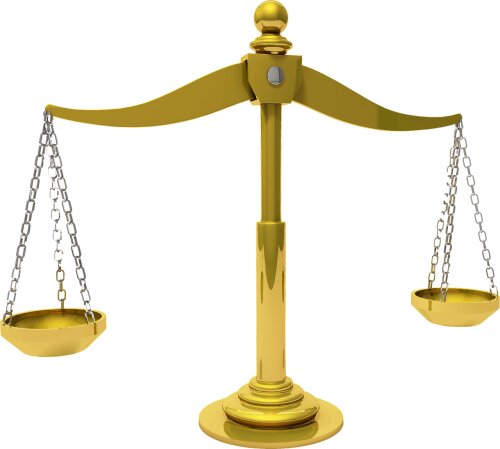Best Divorce & Separation Lawyers in Mthatha
Share your needs with us, get contacted by law firms.
Free. Takes 2 min.
Free Guide to Hiring a Family Lawyer
List of the best lawyers in Mthatha, South Africa
South Africa Divorce & Separation Legal Questions answered by Lawyers
Browse our 1 legal question about Divorce & Separation in South Africa and read the lawyer answers, or ask your own questions for free.
- What can I do to get my divorce settlement
- I got divorced last November, but I haven't received my settlement. It's a story from one to another, so what must I do to get my settlement
-
Lawyer answer by MAH&CO.
Hello, I'm sorry to hear about your situation. If your divorce was finalized last November and you still haven’t received your settlement, it’s important to take legal steps without further delay. In most cases, the court's judgment or settlement agreement...
Read full answer
About Divorce & Separation Law in Mthatha, South Africa
Divorce and separation in Mthatha fall under the jurisdiction of South African family law, which applies uniformly across the country. The process involves the legal dissolution of a marriage by a court. It typically involves the division of assets, determination of child custody if applicable, and sometimes spousal support. The primary aim of the law is to ensure that the dissolution of marriage is conducted fairly, taking into account the rights and responsibilities of all parties involved.
Why You May Need a Lawyer
Divorce and separation can be legally complex and emotionally challenging. A lawyer can provide invaluable assistance in various situations such as negotiating settlements, representing you in court, resolving disputes regarding child custody and support, ensuring fair division of marital property, and understanding your legal rights and obligations. Legal counsel is particularly important if the divorce is contested or involves significant shared assets and debts.
Local Laws Overview
The South African legal framework regarding divorce is governed by acts such as the Divorce Act 70 of 1979. In Mthatha, as elsewhere in South Africa, the two types of divorce procedures are uncontested and contested divorces. An uncontested divorce is simpler and faster, as both parties agree on the division of assets and custody arrangements. A contested divorce, where parties cannot agree, takes longer and is decided by the court. Customary marriages are also recognized and can be dissolved according to both civil and traditional laws. Additionally, the law provides for child welfare and maintenance considerations to ensure that the best interests of any children involved are prioritized.
Frequently Asked Questions
What is the first step in getting a divorce in Mthatha?
Filing a divorce summons with the Family Court is the first step to initiate the divorce process.
Do I have to go to court for a divorce?
If both parties agree on the terms of the divorce, it might be possible to avoid court through settlement; otherwise, court attendance is necessary.
How is child custody determined?
The court prioritizes the best interests of the child, considering factors such as primary caregiver status and the child's wishes, if they're old enough to express them.
What are the grounds for divorce in South Africa?
Irretrievable breakdown of the marriage, mental illness, or continuous unconsciousness of a spouse are the recognized grounds.
How is property divided in a divorce?
Property division depends on the marital regime: in community of property, out of community of property with accrual, or without accrual system.
Can I get spousal support after a divorce?
Spousal support is not automatic and is subject to negotiation or court decision, based on each party's financial needs and means.
How long does the divorce process take?
The duration varies; uncontested divorces could be finalized in weeks, while contested ones can take years.
Can a customary marriage be dissolved?
Yes, customary marriages are recognized by law and can be dissolved similarly to civil marriages.
Do I need a lawyer for an uncontested divorce?
While not mandatory, a lawyer can ensure all legal documentation is correct and advise on any potential future issues.
What is mediation and is it required?
Mediation is a process to help divorcing couples reach an agreement through negotiation facilitated by a neutral third party. It is not mandatory but often encouraged.
Additional Resources
The following resources may be helpful for those seeking assistance with divorce and separation in Mthatha:
- The Mthatha Family Court for filing divorce papers and assistance with legal proceedings.
- Legal Aid South Africa offers free or affordable legal assistance to those who qualify.
- FAMSA (Family and Marriage Society of South Africa) provides counseling and mediation services.
- Department of Home Affairs for information on marriage and divorce registrations.
Next Steps
If you require legal assistance with divorce and separation, consider the following steps:
First, consult with a family law attorney to understand your rights and the legal process. Gather all necessary documents such as marriage certificates, financial records, and any agreements. If possible, discuss with your partner to determine whether an uncontested divorce is feasible. Explore the potential for mediation to amicably resolve disputes. Finally, take advantage of available resources, such as Legal Aid, to ensure you have the necessary support throughout the process.
Lawzana helps you find the best lawyers and law firms in Mthatha through a curated and pre-screened list of qualified legal professionals. Our platform offers rankings and detailed profiles of attorneys and law firms, allowing you to compare based on practice areas, including Divorce & Separation, experience, and client feedback.
Each profile includes a description of the firm's areas of practice, client reviews, team members and partners, year of establishment, spoken languages, office locations, contact information, social media presence, and any published articles or resources. Most firms on our platform speak English and are experienced in both local and international legal matters.
Get a quote from top-rated law firms in Mthatha, South Africa — quickly, securely, and without unnecessary hassle.
Disclaimer:
The information provided on this page is for general informational purposes only and does not constitute legal advice. While we strive to ensure the accuracy and relevance of the content, legal information may change over time, and interpretations of the law can vary. You should always consult with a qualified legal professional for advice specific to your situation.
We disclaim all liability for actions taken or not taken based on the content of this page. If you believe any information is incorrect or outdated, please contact us, and we will review and update it where appropriate.









